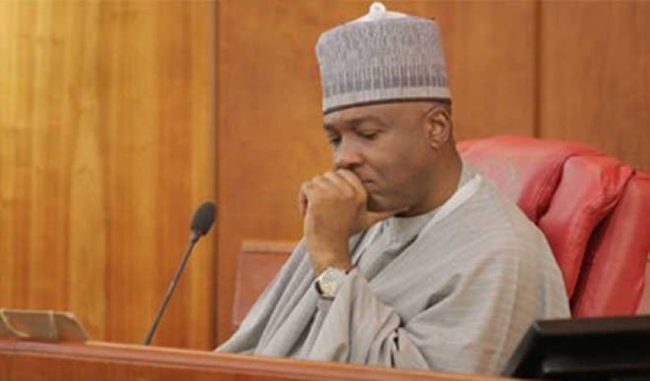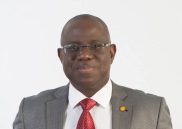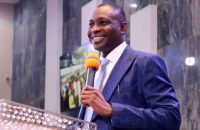

The Economic and Financial Crimes Commission (EFCC) on Monday told a Federal High Court in Lagos that former Senate President, Bukola Saraki used Kwara State Government House funds to pay off a loans he obtained from Guarantee Trust Bank Plc, for the purchase of two properties in Lagos.
The allegation was made on behalf of the EFCC by one of its investigator, Olamide Sadik, while testifying in a suit filed by the commission, seeking to seize two properties belonging to Saraki, situated at 17 & 17A, McDonald Road, Ikoyi, Lagos.
Sadik told the trial judge, Justice Mohammed Liman that sometimes in 2009 his boss, who was the Zonal head for the EFCC, Ilorin Zone asked him to join an ongoing investigation of some properties linked to the former Senate President, who was also a former Governor of Kwara State.
Read Also: Court Remands Zenith Bank Manager Over Alleged N179.4m Fraud
The EFCC investigator claimed that he commenced the investigation by inviting an employee of GTB, Bayo Abdulrahaman Daudu to produce Saraki’s bank statement.
The witness also testified that in the course of his interactions with Dauda, he recovered an offer letter for loan obtained by Saraki for the purchase of the two properties from the Presidential Committee for the sales of Government Properties.
Sadik further told the court that there were evidence that the loan was disbursed by the bank on behalf of Saraki to the Presidential Committee for Sales of Government Properties through Bank drafts.
He also claimed that he interrogated a Cashier with the Government House, Hafeez Yusuf, “who was persistently withdrawing money from the government house account with Access Bank PLC.”
The EFCC operative added that from his investigation and interactions with Yusuf, he discovered that one Abdul Adama, a domestic servant to Saraki usually and constantly withdraws cash from government’s accounts and paid the cash to Saraki’s account with GTB and the same government funds was used to repay the loan obtained from GTBank.
Sadik further testified that several lodgments were made into the account with ‘fictitious names’ which were untraceable while some others were made with a single name.
He said, “EFCC investigation also revealed that Adama was collecting an average of N100 million monthly and depositing same into Saraki’s personal account which was eventually used to repay the loans obtained from GTB to purchase the properties in Lagos.”
The witness alleged that to beat the anti-money laundering Act, the money was deliberately structured and this lead the bank to write the Financial Intelligent Unit, FIU, complaining about the way money are being paid into the account.
“The summary of our investigation is that Dr Bukola Saraki obtained loans from GTB to buy the properties, but repaid the loans from money being collected by Abdul Adama, his domestic aide and others unidentified people,” he maintained.
Earlier before Sadik’s testimony, the Chief Accountant in Kwara State’s Government House, Hafis Yusuf had told the court that he used to give monies to Abdul Adama on the instruction of his boss, Isiaka Kareem, a former Controller of Account and Finance.
But during cross-examination by Saraki’s counsel, Kehinde Ogunwomiju (SAN), the two witnesses told the court that they did not have any interface with the former Senate President.
Sadik said that he did not investigated the Kwara State budget, neither did he know what the money was used for.
After EFCC concluded its oral evidence as ordered by the court, counsel to Saraki, informed the court that they relied on the evidence of the anti-graft agency as their defence in the suit.
Also at yesterday sitting, Justice Liman refused an application by the EFCC seeking to subpoenaed one of Saraki’s allies, Kennedy Izuagbe, to give evidence as to the affidavit he deposed to in response to the suit.
The judge has adjourned the forfeiture suit till December 16, 2020, for adoption of parties’ final written addresses in the suit.
It would be recalled that Justice Liman had on June 8, 2020, ordered the anti-graft agency to bring more evidence in support of its suit against Saraki.
In a ruling on EFCC’s motion for final forfeiture of the property, the judge noted that while the anti-graft agency had made “a strong showing of strange transactions” through Saraki’s statement of bank account exhibited in court, it needed to call witnesses to prove that the funds deployed to building the houses were proceeds of fraud.
EFCC lawyer, Nnaemeka Omewa, who moved the application for the final forfeiture had informed Justice Liman, that the properties were acquired with a loan obtained from Guaranty Trust Bank and paid back by money suspected to have been diverted from the coffers of the Kwara State government.
Omewa specifically alleged that “There are written statements from some officials of the Kwara State government on how the money was taken from the coffers of the state government and used to pay back the loan.”
The EFCC therefore asked the court to look at the merit of its case, all the exhibits attached and make an order permanently forfeiting the properties to the Federal Government.
But Saraki’s counsel, Ogunwumiju had however asked the court to reject the application by the anti-graft agency.
The counsel argued that the EFCC has not been able to prove that the money used to pay back the loan was acquired by any illegal activity.
He also told the court that the EFCC had litigated on the same properties before the Code of Conduct Tribunal all the way to the Supreme Court and had lost.
The counsel then asked the court to dismiss the EFFC’s suit seeking the final forfeiture of the properties and to instead rule in favour of his client.






















